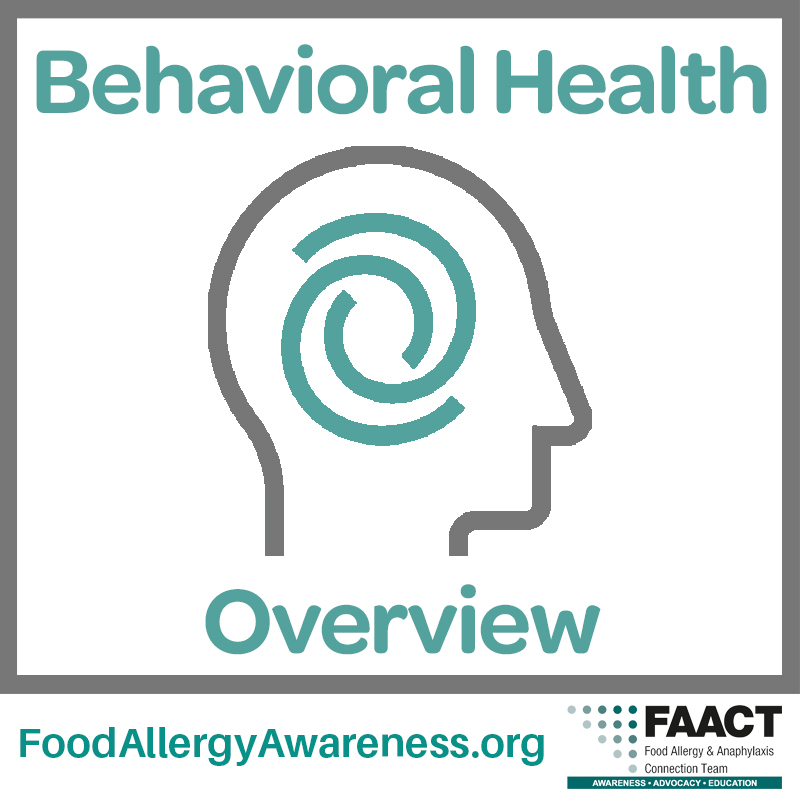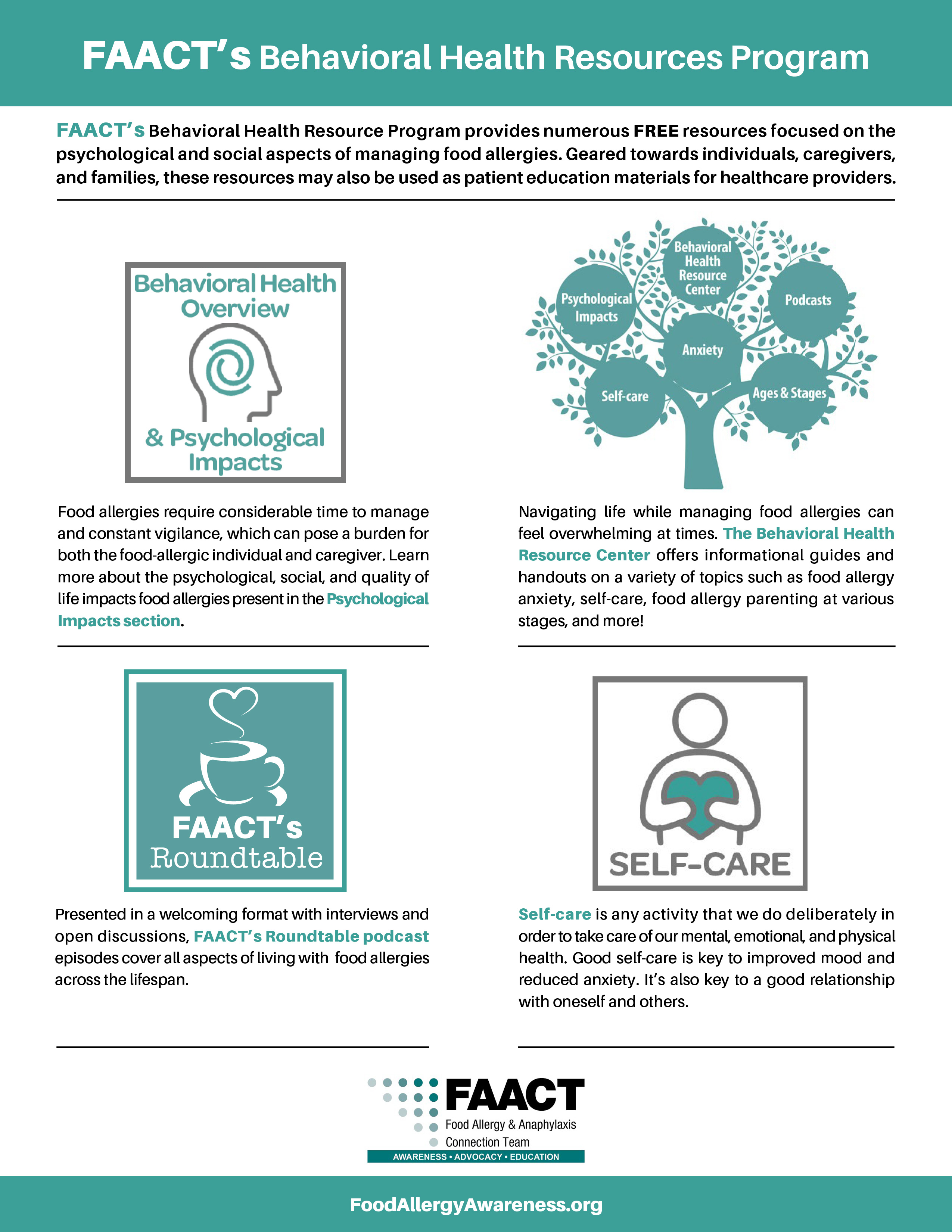Behavioral Health
Behavioral Health Overview and Psychological Impacts
Back to Category View
Overview
Food allergies require considerable time and constant vigilance to manage, which can pose a burden for both the food-allergic individual and his or her caregiver. Caregivers’ and food-allergic individuals’ quality of life is often negatively affected. Another source of anxiety may be harassment of the food-allergic individual.
Although several studies have demonstrated poor quality of life of caregivers of food-allergic children and the negative impact of food allergy, more data is needed. In recent studies, caregivers of children who were seen in the emergency room within the past year for a food-allergic complication felt the most burden among caregivers. Similarly, caregivers of children managing multiple food allergies, allergic to specific foods, and/or who have more knowledge about food allergy were significantly likely to have a poorer quality of life.
All children and teens must be given the opportunity to make new friends, develop more autonomy, expand their social skills, and improve their problem-solving skills in social situations. There may be a tendency for parents to try to shield food-allergic children from adversity and risk. However, although food allergy may restrict a child’s social interactions, the goal is to provide as normal a childhood experience as possible. Excessive or long-standing restrictions (e.g., isolation at meal times or policies that result in limiting the child’s participation in celebrations) could result in increased social isolation and associated feelings of depression or social anxiety. So, it is important to provide as inclusive an environment as possible for the food-allergic child/teen to foster these developmental stages.
We will continue to create and provide numerous FREE resources for families and individuals in the weeks to come. We are very excited to share more with you soon. Stay tuned!
Navigate FAACT's Behavioral Health Resource Center:
FAACT's Navigating a New Diagnosis
FAACT's Roundtable Podcast
FAACT's Self-care Section
FAACT's Parents Section
FAACT's Anxiety and Depression Section
FAACT's Behavioral Health Resources Program Overview
If you would like to download this one-pager to share with medical professionals, schools, families, etc., you may download it here.
